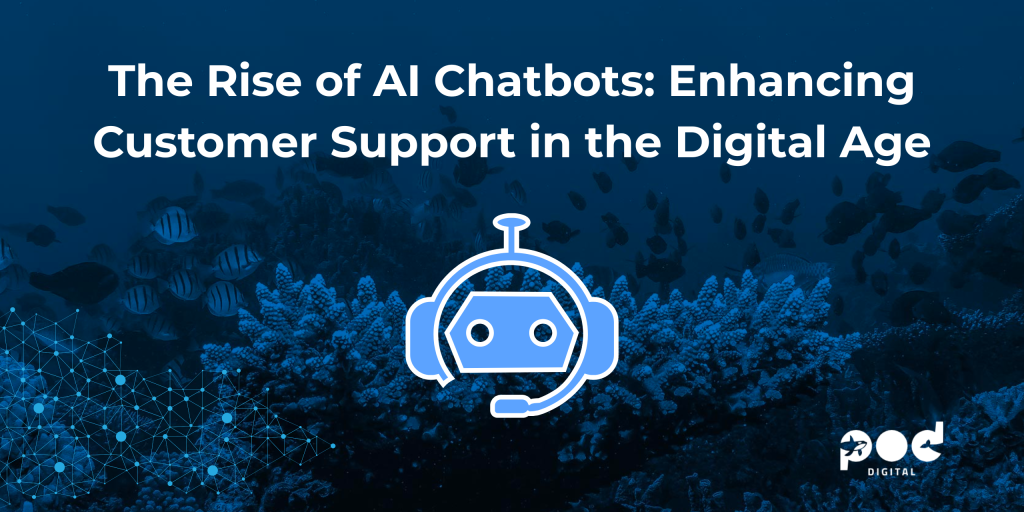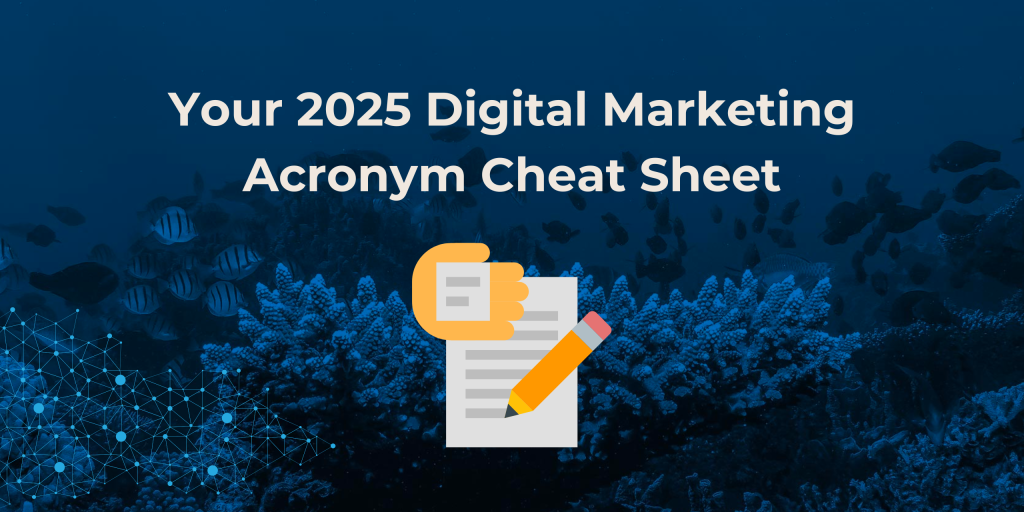CRO Meets the Rise of AI Agents
AI is changing how people find, choose and interact with websites. Increasingly, it’s not just human visitors making decisions about your site: AI agents are analysing it too.
Think of AI Agents like digital personal shoppers. They quickly scan the shelves (websites), compare quality and then decide which options to show the customer.
These systems evaluate your website’s clarity, trustworthiness and usability before deciding whether to recommend it, prioritise it or overlook it entirely.
This shift makes CRO for websites more important than ever. A well-optimised site no longer just converts people. Your website signals to AI agents like ChatGPT Agent, Google AI Overviews and LLMs that your business is credible, usable and worth surfacing.
Let’s look at:
- What AI agents are and why they matter
- How CRO has evolved in the age of AI
- Practical CRO services and tactics for AI-ready websites
What Are AI Agents?
We aren’t just talking about AI Search; we are talking about AI Agents. An AI agent is a system that analyses information from its environment and acts to achieve specific goals. In simple terms, an AI agent is like a digital assistant that can search, evaluate and act on your behalf.
Think of it like a decision-making assistant: it doesn’t get distracted, confused or emotional. Instead, it weighs clarity, usability and trust to determine how well a website performs.
A ChatGPT agent, for example, may analyse multiple websites before recommending one for a user query. If your website appears confusing, slow, or untrustworthy, the agent is likely to skip over it. That means your CRO isn’t just about human visitors anymore. It’s also about convincing AI systems that your site is the best choice.
What Is CRO?
Conversion Rate Optimisation (CRO) is the process of improving your website to increase the percentage of visitors who take a desired action. That may be when making a purchase, submitting a form or booking a call.
Think of CRO as the digital equivalent of a well-trained shop assistant: they guide you straight to what you need, help you make a decision confidently and quickly.
Historically, CRO focused on human experience: page speed, clear calls-to-action, streamlined checkouts and strong trust signals. These fundamentals remain critical, but today, another audience has entered the picture – AI.
If you’d like a full breakdown of what CRO is and how it benefits your business, we’ve covered that in detail here.
How AI Agents Actually Work in Practice
Think of AI agents as incredibly fast, tireless assistants that check websites on your behalf.
If a human spends hours browsing, an AI agent does the same job in seconds. It’s like having 100 interns checking every restaurant in town, then handing you only the top two that tick all the boxes.

They’re checking:
- If sites load quickly (nobody likes waiting).
- It is looking for real customer reviews, case studies and professional credentials (signs the business is legitimate).
- Then it is testing whether the website is easy to navigate (can you actually find what you need?).
Unlike Google’s search engine, which mainly looks at keywords and who links to a site, these AI agents care about the same things you do as a customer:
- Is this site trustworthy?
- Is it user-friendly?
- Does it seem professional?
They then create a mental “score” for each website based on these factors. Websites with poor experiences, slow, confusing, or sketchy-looking, get low scores and rarely get recommended. Well-designed, fast, trustworthy sites get high scores and frequent recommendations.
Millions of people now rely on AI agents for recommendations daily. The number is growing rapidly; websites that impress these AI systems have a major competitive advantage. Having a strong CRO for websites that works well for AI against has become just as important as impressing human visitors for staying visible and competitive online.
ChatGPT and ChatGPT Agent: What’s the Difference
- Asking ChatGPT gives you an answer, advice or guidance.
- Asking a ChatGPT agent means giving a request it can actually carry out, like booking a table, sending an email, or buying tickets. This is because the agent is connected to tools and services that can take action on your behalf.
This is where CRO becomes critical. If an AI agent is going to complete the transaction for the user, whether that’s
- booking a demo
- ordering a product
- making a payment…
Your website must remove every barrier. A clunky checkout, unclear pricing, or broken form doesn’t just lose a customer; it stops the AI agent from finishing the job at all. In effect, you’re either enabling the agent to act on your behalf or shutting the door before the transaction can happen.
So: ChatGPT = information.
ChatGPT agent = information plus action.

CRO in the Age of AI Agents: Human and Machine Audiences
CRO services now need to balance two goals:
- Human usability – ensuring visitors have a smooth, trustworthy experience.
- AI readability – ensuring your site structure, performance and trust signals are strong enough for AI agents to recommend.
Websites that neglect this risk are “invisible” to AI-driven systems, which increasingly guide user decisions in search, commerce and beyond.
CRO Services That Make Your Website AI Agent-Ready
Trust Signals
AI agents weigh trust as heavily as humans do. Strong CRO for websites means embedding signals that show your business is credible:
- Verified reviews (Google, Trustpilot)
- Testimonials with names, photos, or companies
- Case studies and success stories
- Media mentions or brand logos (“As seen in Forbes”)
- Certifications, awards, accreditations
- Professional design & consistent branding
- Secure HTTPS encryption (SSL/TLS)
Website Performance
Speed is a major ranking factor for both humans and AI. CRO services should ensure:
- Load times under 2 seconds for minimal bounce risk
- Core Web Vitals compliance. They are Google’s way of checking if your website loads quickly, stays stable and responds smoothly to users.
- Mobile responsiveness (buttons, forms, scrolling must work seamlessly)
Slow or clunky websites lose conversions and trust, both from people and AI agents.
Navigation and Usability
Visitors (and AI) reward simplicity:
- Clear, intuitive menus with fewer than seven items
- Conversion actions (checkout, demo, enquiry) in fewer than three clicks
- Clear, familiar labels (e.g., “Pricing” vs “Solutions”)
- Zero broken links or 404s. A broken link is a link on a website that doesn’t work anymore, and a 404 is the error message you see when that link takes you to a page that doesn’t exist.
Conversion Funnel Friction
Reduce drop-offs by making it easy to act:
- Transparent pricing, no hidden fees
- Short forms (three to five fields are ideal)
- Guest checkout options
- Clear thank-you pages and confirmations
- Avoid over-complicated CAPTCHAs. Those are the simple tests on a website, like typing in wobbly letters or clicking pictures of traffic lights, designed to check that you’re a real person, not a robot.
Avoid Aggressive Marketing
AI agents detect negative engagement patterns. CRO for websites should minimise:
- Multiple pop-ups before 50% scroll
- Excessive CTAs competing for attention
- Autoplay videos (especially with sound)
- Overly intrusive chatbots
CRO as the Foundation of AI Agent Visibility
In the age of AI, CRO is no longer just about pleasing human visitors. AI agents look at things like how fast, trustworthy, easy to use and clear your site is, then use that to decide if it’s worth recommending or using.
If your site falls short, AI may classify it as high-friction and move on. If it performs well, you don’t just win more conversions, you gain visibility in the AI-driven digital landscape.
Our CRO services ensure your site converts more visitors and earns the trust of AI agents. Get in touch with Pod Digital today to future-proof your website performance.
FAQs: CRO and AI Agents
Do AI agents use SEO rankings?
AI agents don’t just use SEO rankings. Unlike search engines that look at backlinks and keywords, AI agents prioritise usability, trust and performance. That’s why CRO for websites is now a ranking signal for AI-driven systems.
How does CRO impact AI recommendations?
Well-optimised websites with strong CRO services send signals of trust and professionalism. AI agents are more likely to recommend them over slow, unclear or untrustworthy sites.







